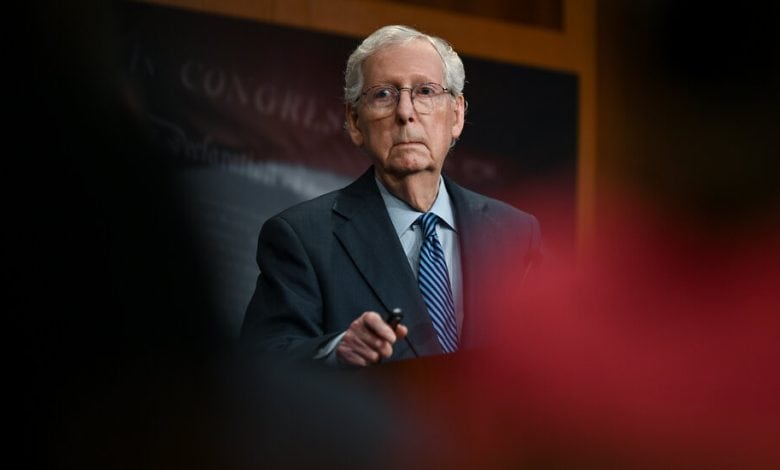Bucking G.O.P. Isolationists, McConnell Was Linchpin in Winning Ukraine Aid

Senator Mitch McConnell does not give much away even in the most private of settings.
So it was notable when the typically inscrutable Republican leader asked to speak first at an Oval Office session with President Biden and other congressional leaders called in late February to pressure Speaker Mike Johnson into putting military assistance to Ukraine up for a floor vote.
The thinking was that Mr. Johnson, the novice Republican leader whose right-wing members were threatening to oust him from the speakership if he moved ahead with the aid to Kyiv, would be more inclined to listen to a fellow Republican like Mr. McConnell than to pleas from Mr. Biden or the Democratic congressional leaders, Senator Chuck Schumer and Representative Hakeem Jeffries.
“I wasn’t trying to convince Johnson of anything other than we had a time problem,” Mr. McConnell said in an interview on Tuesday, recounting the White House meeting and his message that help for Ukraine could not wait for Mr. Johnson’s political problems to sort themselves out. “I didn’t think we had time to fool around.”
Mr. McConnell did not get immediate results. It took almost two more months and some legislative circuity. But Mr. Johnson finally acted last week and the House sent the aid package to the Senate, which followed suit on Tuesday night in overwhelmingly approving more than $60 billion in assistance for beleaguered Ukraine after months of delay and political strife.
The resounding vote delivered Mr. McConnell yet another hard-fought legislative win in a long career of bare-knuckle victories, bitter losses and partisan maneuvering. But for once it was not the Democrats he was battling.
Instead, it was powerful forces within his own party who regard America’s role in the world much differently from Mr. McConnell’s expansive view and consider him badly out of step with contemporary Republicanism and base voters.